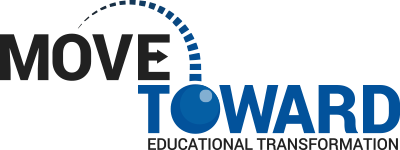Move Toward
Photo by Alonso Navarro on Unsplash
If you are reading this, you probably already know the job of a teacher isn’t what it appears.
Much of it is unmeasurable in terms of success. While the general public depends on state tests and enrollment rates, the impact that teachers make goes far beyond. What teachers do every day in every interaction matters. What you do everyday matters. I don’t want to get hyperbolic here, but you don’t know when you are really impacting students, and you have the power to inspire and engage or harm and disengage. Oh, and most teachers also have a huge workload, limited time to do it and, often, resources that don’t live up to the need.
So, and again you probably know this, while teachers want to improve in their craft, there is limited time to learn about and implement dynamic, programmatic changes that may impact students. Profound change can come over time, and it is all about moving toward learning-centered educational transformation.
At Move Toward, we believe in the integration of strategies, practices and mindsets that empower teachers to engage students in their own learning. It is not about one more thing, but it is about integrating great practices with what is already happening to build on the strengths and raise the thinking and learning level within the classroom so that the thinking and learning will transfer to the world outside of the classroom. We want to move toward learning-centered educational transformation, and we do it by making small improvements to our practice.
We move toward understanding rather than knowledge.
We move toward student agency rather than student passivity.
We move toward discovery rather than transmission.
We move toward deep thinking over curriculum coverage.

